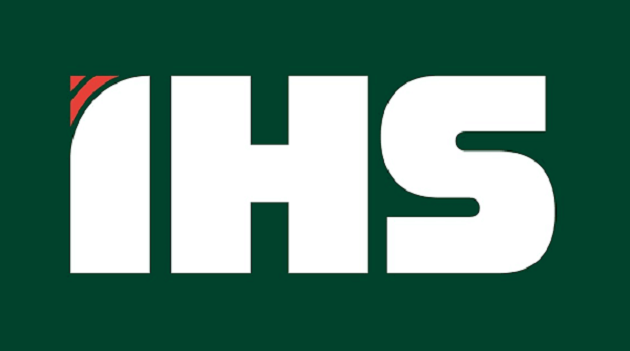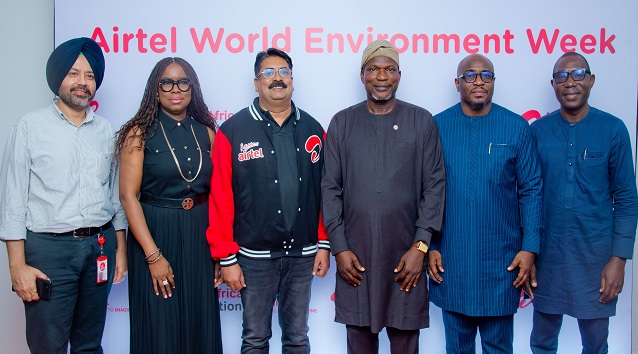News
Kaspersky Blocks more than 30 000 Mobile Malware Attacks Combined in Nigeria, Others in 6-months

Out of the more than 206 000 mobile malware attacks blocked by Kaspersky solutions for the Middle East, Turkey and Africa (META) region in just 6-months measured, between January to June 2021, over 30 000 of these attacks combined originated from Nigeria (14 071), Kenya (10 697), and South Africa (5 499).

Significantly, for African countries monitored, Nigeria only trails Egypt (19 466) by the number of attacks blocked, pointing to how prevalent mobile threats have become in this highly connected country.
In fact, Kaspersky’s latest research shows that when looking at the top ten countries by share of users attacked by mobile malware Nigeria places eighth (at 11.76%).
Even though Kenya and South Africa might not feature as prominently, the mobile malware threat is still a concern, along with the shift to more targeted based attacks these countries are seeing.
The top three most prevalent malware behaviours that Kaspersky has seen in Kenya and Nigeria are Trojans, Trojan-Downloaders; and Trojan-Droppers. In South Africa, these are Trojans, Trojan-Proxy; and Trojan-Downloaders.
A Trojan is a type of malware that is often disguised as legitimate software which attackers can use to try and gain access to user systems. As the name suggests, Trojan-Downloaders download and install new versions of malicious programmes, including Trojans and Adware on victim computers.
Meanwhile, Trojan-Droppers usually save a range of files containing malicious programmes to the victim’s drive. Once installed, a Trojan-Proxy allows an attacker to use the infected device as a proxy to connect to the Internet.
“Mobile malware remains a significant threat for corporate and personal users across Africa. These attacks are usually very diverse with hackers leveraging a range of methodologies and technologies to compromise victim’s devices.
Trojan-Downloaders and Trojan-Droppers are especially dangerous given their potential to contain significantly damaging payloads,” says Bethwel Opil, Enterprise Sales Manager at Kaspersky in Africa.
In addition to installing cybersecurity solutions on their mobile devices, like Kaspersky Total Security, here are a few additional ways users can enhance their security:
– Create a strong password. By putting a strong password on their smartphone, the device can become unusable if it is lost or stolen and the password attempt fails a certain number of times.
– Do not trust SMS. Mobile malware uses text messages, so users should never respond to requests for credit card details or other private information.
– Check your browser for the lock symbol. The lock icon in the address bar indicates that the sight is secure when entering personal data.
Install apps from reputable sources. Popular shopping sites such as Amazon or eBay have their own mobile applications.
You must check to see they are the official apps from the company before you initiate a download. This can be done by checking the developer information and user ratings on the download page.
News
IHS Nigeria Reaffirms Commitment to raising Nigeria’s Next Tech Giants from the Ilorin Innovation Hub

Telecommunications infrastructure provider, IHS Nigeria, has reiterated its commitment to transforming the Ilorin Innovation Hub into a leading destination for talent and technology development across North-Central Nigeria. The company envisions the Hub as a launchpad for future unicorns and a magnet for young innovators from Kwara State and the surrounding regions.

Speaking during a virtual town hall session organized by the Ilorin Innovation Hub with the theme “From Ilorin to the World: Building a Globally Recognized Technology Hub,”, Mr. Kazeem Oladepo, Senior Vice President & Chief Operating Officer of IHS Nigeria, emphasized the importance of collaboration, mentorship, and community engagement in nurturing the next generation of entrepreneurs.
“We see the Ilorin Innovation Hub as a platform to attract top talent—not just from Ilorin, but from across the region’s tertiary institutions and tech ecosystem,” Oladepo said. “This is an opportunity to build globally impactful companies by harnessing local brilliance with global insight.”
Mr. Temi Kolawole, Managing Director/CEO of the Ilorin Innovation Hub, described the town hall as a homecoming for top minds with roots in Kwara State.
“This is a convergence of visionaries—people who’ve built, scaled, and invested in world-class companies—now giving back to shape a collective future,” Kolawole said. “Our partnership with IHS Nigeria exemplifies what’s possible when public sector ambition meets private sector expertise.”
Responding to a participant’s question on how individuals could contribute towards the growth of the hub, Mr. Oladepo encouraged industry experts present to engage directly with the Hub’s program managers – future Africa and Cc-Hub, provide mentorship, and help in aligning the training modules with local and global market realities.
“IHS is already investing financial, technical, and intellectual resources into the Hub. But to truly thrive, we need champions within the ecosystem—mentors who’ve built real businesses—to guide young people as they develop transformative ideas,” he noted.
Highlighting long-term sustainability, Oladepo called for the inclusion of successful professionals and entrepreneurs in the Hub’s activities to ensure relevance and adaptability.
“Let’s bring in those who’ve succeeded in fields like e-commerce, logistics, Healthtech, and Data Mining. Their insights can help refine the Hub’s programs and ensure participants extract real value,” he added.
Other speakers at the session included Ms. Anu Adasolum, Founder & CEO of Sabi, and Mr. Chris Folayan, Founder of Founder Centered. The virtual townhall was well attended with participants including tech enthusiasts, founders, startups drawn from both within and outside Nigeria.
News
Airtel Nigeria Promotes World Environment Day with Nationwide Sustainability Activities

Telecommunications provider, Airtel Nigeria has reaffirmed its commitment to environmental sustainability with a nationwide campaign to combat plastic pollution in commemoration of World Environment Day 2025.

Themed “Ending Plastic Pollution”, this year’s events demonstrated the corporate mission of Airtel to champion environmental stewardship.
Tagged #UnPlasticAfrica, the company’s campaign began on June 3, mobilizing employees across six operating regions for a week of education, advocacy, and cleanup activities aimed at promoting sustainable living, in alignment with global efforts to reduce plastic pollution.
The activities kicked off with a Sustainability Seminar, led by Dr Hassan A. Sanuth, Director of Sanitation Services at the Lagos State Ministry of the Environment and Water Resources, and focused on the role of the individual in reducing plastic waste while promoting practical recycling habits.
Following this educational session, all Airtel Nigeria employees took the “Eco Pledge” to commit to reusable containers.
In his remarks at the seminar, Chief Executive Officer of Airtel Nigeria, Dinesh Balsingh, reaffirmed Airtel`s dedication to sustainability.
“As we invest in Nigeria’s digital future, we are equally committed to protecting the environment that sustains us. From AI-powered services that reduce paper use to partnerships that connect rural areas without environmental disruption, we are embedding sustainability into every layer of our operations,” he said.
Speaking at the workshop, Dr. Sanuth emphasized the urgency of addressing the plastic pollution crisis, particularly in urban centers like Lagos.
“Plastic waste is choking our drains, polluting our water bodies, and threatening public health. Every little action counts, from individuals making conscious choices to organizations taking bold steps and together, our collective efforts can make a significant impact in ending plastic pollution,” he noted.
He also highlighted the dangers of plastic waste, noting that microplastics have been traced in food, water, and even human blood and called for stronger policies and corporate accountability.
The highlight of the week was a market clean-up and sensitization drive held by Airtel employees in Abuja, Oyo, Benin, Enugu, and Kano. Airtel staff volunteers, in collaboration with local partners, led plastic collection efforts, conducted environmental hygiene training, and distributed over 3,000 branded reusable bags and parasols to market vendors and shoppers.
The World Environment Day campaign, nicknamed Earth Fest 2025, is part of Airtel Nigeria’s broader CSR Strategy, which continues to integrate environmental stewardship into its organizational practices.
News
NOTAP Boss Laments Loss of IPR by Nigerian Researchers

Dr. Obiageli Amadiobi, director general, National Office for Technology Acquisition and Promotion (NOTAP), has expressed displeasure over the level of Intellectual Property Right (IPR) losses by Nigerian researchers due to insufficient knowledge of the benefits of IPR protection.

Speaking at a one-day Coordinator’s Forum organized by the Office in Uyo for the South-South geopolitical zone of the country, the Director General, represented by Mrs. Caroline Anie-Osuagwu, director of Technology Acquisition and Research Coordination (TARC) department, said that prior to the establishment of the Intellectual Property and Technology Transfer Offices (IPTTOs) in Nigerian knowledge establishments, Nigerian researchers had no deep knowledge of the importance of IP protection, hence losing their IP rights.
In a statement signed by Raymond Onyenezi Ogbu for the head, Public Relations and Protocol Unit of NOTAP, the DG advised researchers to always file for a patent each time they anticipate a breakthrough and avoid publishing before patenting, as any research work published in a paper is already in the public domain and can no longer be patented.
“IP rights are rights granted to a researcher or inventor by the government to have a monopoly over the financial exploitation of their inventions for a period of time to recoup the expenditure on their research undertaking”. the DG said.
She challenged patent owners to license or commercialize their inventions, adding that patents that cannot metamorphose into tangible products and services are not worth keeping, as they are liabilities to the owners.
The DG said that researchers with patented inventions can license their invention for royalty purposes or sell them outrightly to venture capitalists if they cannot commercialize.
“Over the years, the nation has depended on the consumption of products from foreign research, while Nigeria is blessed with skilled human resources but only needs to be strategic in their research understanding”.
“The aim of organizing the IPTTO coordinator’s forum was to interact with the coordinators, know their challenges and achievements, and encourage the centers that are not very progressive to strengthen their centers.” She added.
The DG stressed that while a number of centers are performing well, some are struggling to find their fit, occasioned by bureaucratic bottlenecks.
She expressed confidence in the ability of the research communities engaging in demand-driven and market-driven research to fast-track development adding that technology development is a product of research work, and knowledge institutions are duty-bound to engage in critical research to advance the IPR ecosystem in Nigeria.
Participants from the South-South Zone took turns to commend NOTAP for the impactful program and requested the Office to assist them with links to venture capitalists for the commercialization of their research results.
All the IPTTO coordinators presented their scorecards and were advised to get ready for the 2026 IPTTO ranking that would be organized by the Office.

 E-Financial2 days ago
E-Financial2 days agoPalmPay Seeks $100m Funding Round

 Telecom2 days ago
Telecom2 days agoAnambra Cracks Down on Illegal ISPs, Cites Security, Service Concerns

 News2 days ago
News2 days agoFBI Busts Alleged Cyber Fraud Ring Led by Nigerian ‘Tech Queen’

 News2 days ago
News2 days agoNOTAP Boss Laments Loss of IPR by Nigerian Researchers

 E-Business2 days ago
E-Business2 days agoNIMC Denies Blocking Police Commission from Verification Server

 Telecom2 days ago
Telecom2 days agoInstagram Unveils Teen Safety Features in Nigeria

 E-Financial2 days ago
E-Financial2 days agoAyo Adepoju Joins Ecobank Board as Group Executive Director

 General News2 days ago
General News2 days agoAFC Proffers Action Plans for Nigeria, Africa to Unlock $4trn from Investors to Grow Economy




























